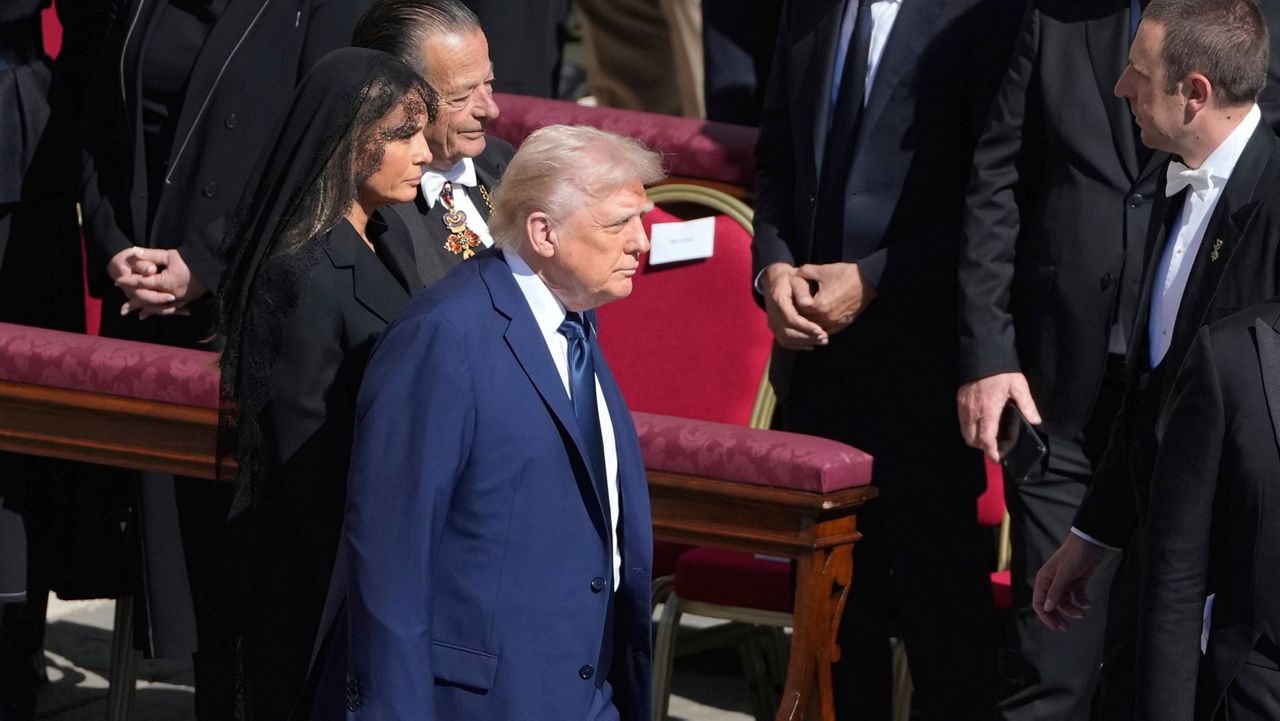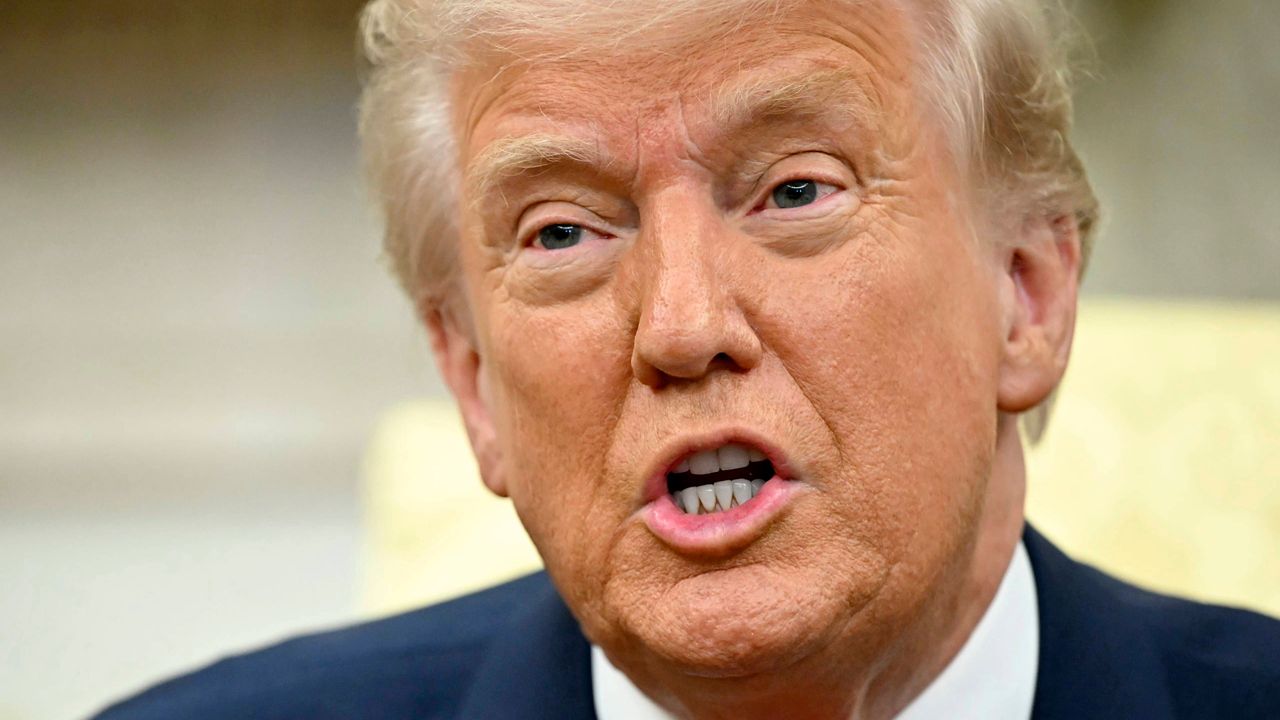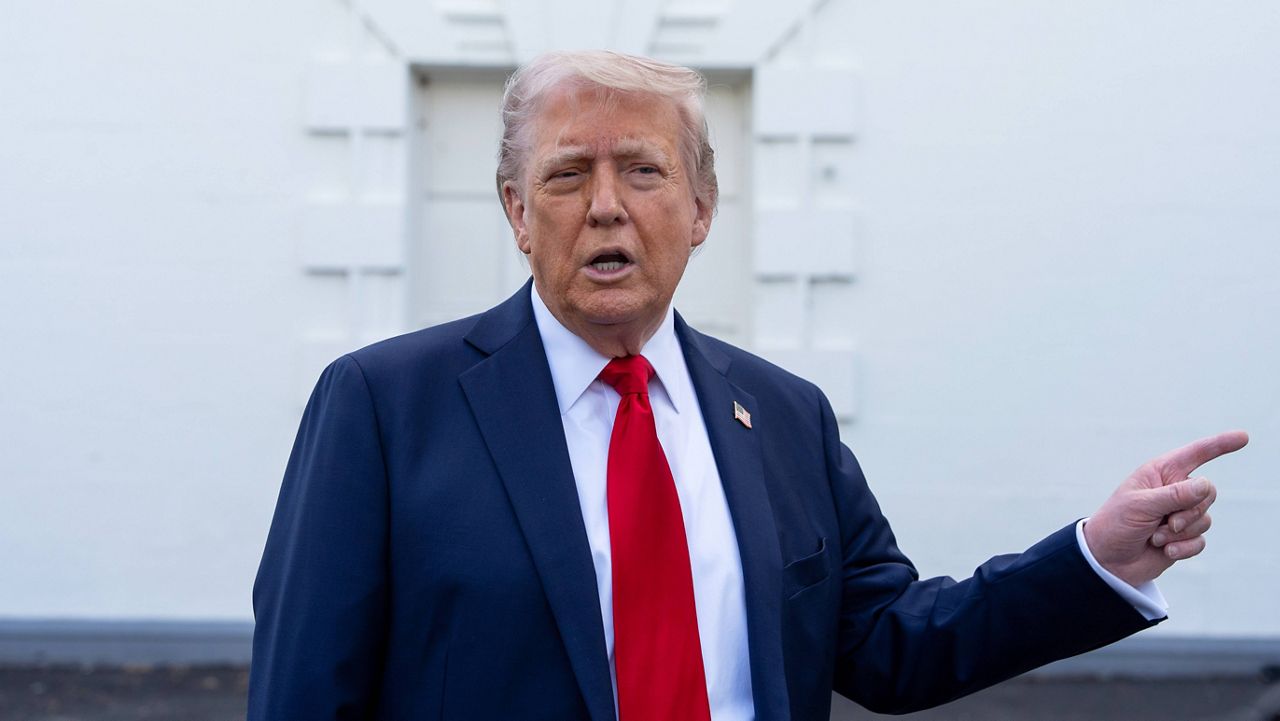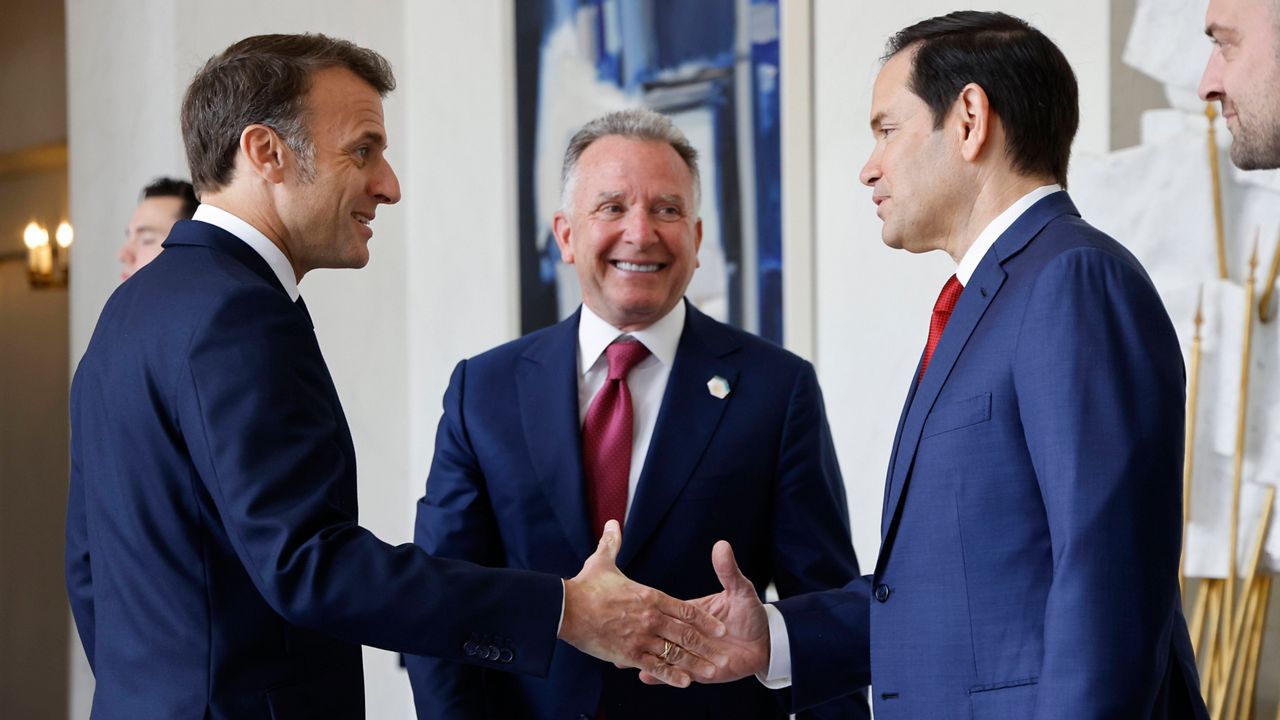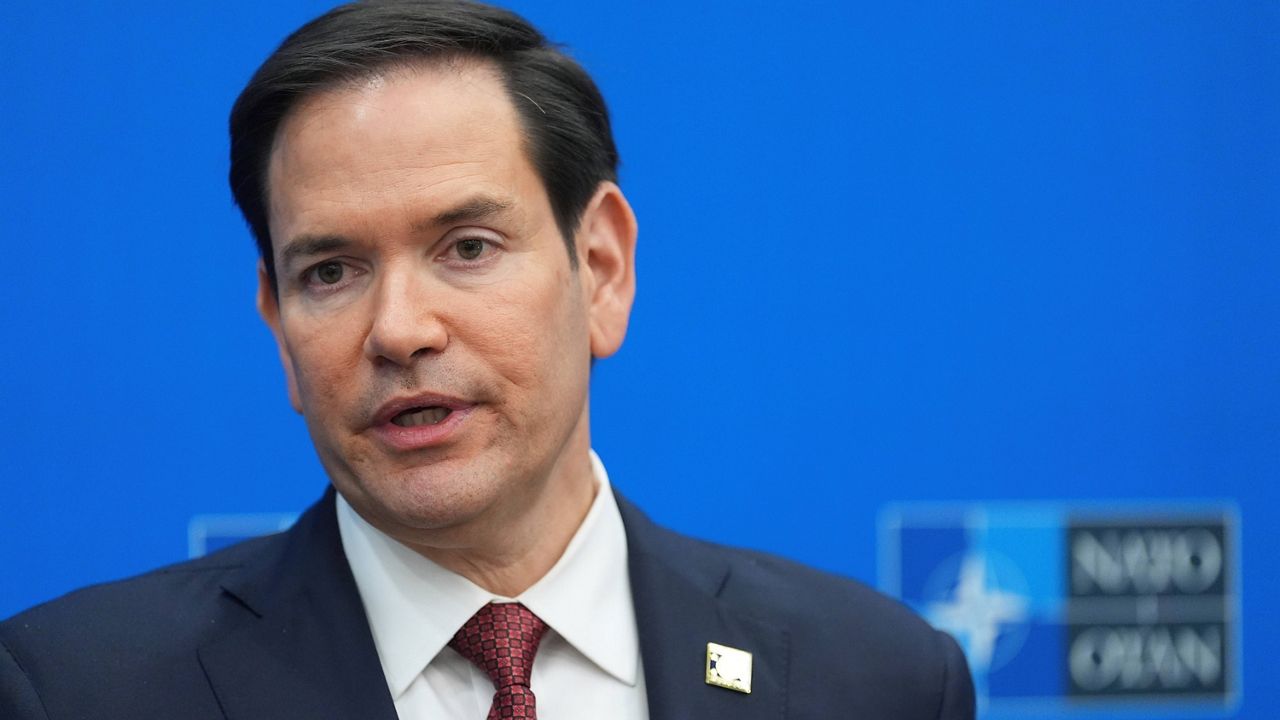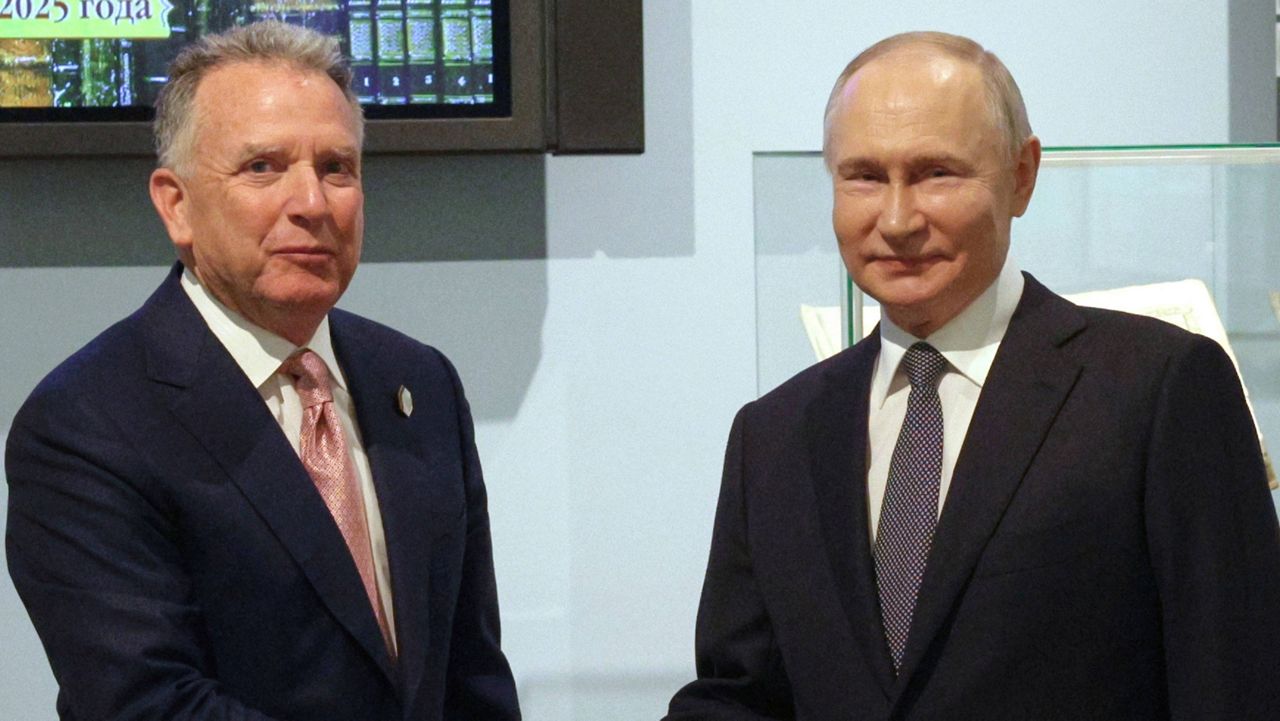PARIS — Secretary of State Marco Rubio said Friday that the U.S. may "move on" from trying to secure a Russia-Ukraine peace deal if there is no progress in the coming days, after months of efforts have failed to bring an end to the fighting.
What You Need To Know
- Secretary of State Marco Rubio says the U.S. may "move on" from efforts for a Russia-Ukraine peace deal if there is no progress in the coming days
- Rubio spoke in Paris after landmark talks among U.S., Ukrainian and European officials
- He said the discussions had been constructive and produced an outline for steps toward peace
- French officials said a new meeting in the same format is expected to take place in London in the coming days
He spoke in Paris after landmark talks among U.S., Ukrainian and European officials produced outlines for steps toward peace and appeared to make some long-awaited progress. A new meeting is expected next week in London, and Rubio suggested that could be decisive in determining whether the Trump administration continues its involvement.
"We are now reaching a point where we need to decide whether this is even possible or not," Rubio told reporters. "Because if it's not, then I think we're just going to move on. It's not our war. We have other priorities to focus on."
He said the U.S. administration wants to decide "in a matter of days."
Speaking to reporters in the Oval Office later, President Donald Trump agreed that he wants to see the war end “quickly” but declined to give a specific deadline and would not commit to walking away from talks.
The president instead expressed a level of optimism, saying he believed “we have a good chance of solving the problem.”
“If for some reason one of the two parties makes it very difficult, we’re just going to say you’re foolish, you're fools, you’re horrible people and we’re gonna just take a pass,” Trump said. “But hopefully we won’t have to do that.”
Pressed on whether Russian President Vladimir Putin was stalling, Trump responded, “I hope not.”
He later insisted “nobody’s playing me, I’m trying to help,” when asked if Russia, which has yet to agree to a U.S. and Ukraine-backed ceasefire plan, was doing so.
Rubio's comments came as the U.S. and Ukraine are nearing a long-delayed deal granting the U.S. access to Ukraine's vast mineral resources, which has been intertwined with President Donald Trump's peace push. Trump said Thursday: "We have a minerals deal.'' Ukraine's economy minister said Friday that the two countries signed a memorandum of intent ahead of a possible fuller agreement later.
The deal, which Ukrainian Economy Minister Yuliia Svyrydenko said she signed with U.S. Treasury Secretary Scott Bessent, is expected to pave the way for significant investments, infrastructure modernization and long-term cooperation.
The framework of the mineral deal had stalled in February following a contentious Oval Office meeting between Trump, U.S. Vice President JD Vance, and Ukraine's President Volodymyr Zelenskyy. Negotiations have since resumed.
Vance, meanwhile, said there had been important developments in Russia-Ukraine negotiations in the past 24 hours. "I won't prejudge them, but we do feel optimistic that we can hopefully bring this war, this very brutal war, to a close," he said in Rome.
Despite apparent impatience with the peace efforts, Rubio called Thursday's Paris talks constructive. He didn't single out Russia or Ukraine as blocking peace efforts. He said he informed Russian Foreign Minister Sergey Lavrov about the outlines that emerged, but wouldn't say how Lavrov reacted.
When asked about Rubio's comments on Friday, Kremlin spokesman Dmitry Peskov told reporters that "fairly complex" negotiations are ongoing between Russia and the U.S. He did not give details but said no direct talks between Trump and Putin are scheduled in the coming days.
"Russia is striving toward resolving this conflict, securing its own interests, and is open to dialogue. We are continuing to do this," he said.
Peskov also stressed that a limited, 30-day ceasefire backed by Washington that both Russia and Ukraine last month embraced in principle has now lapsed, but did not say what steps Moscow might take next.
While voicing their readiness to implement the agreement, the warring parties issued conflicting statements soon after their separate talks with U.S. officials in Saudi Arabia. They differed on the start time of halting strikes, and alleged near-immediate breaches by the other side.
After weeks of tensions with European allies, Rubio said the European negotiators proved helpful. "The U.K. and France and Germany can help us move the ball on this."
European concerns are growing about Trump's readiness to draw closer to Russia. The talks in Paris were the first time since Trump's inauguration that top American, Ukrainian and European officials met to discuss an end to the war, which has posed the biggest security challenge to Europe since World War II.
The meetings addressed security guarantees for Ukraine in the future, but Rubio wouldn't discuss any possible U.S. role in that. Some kind of U.S. support for Ukraine is seen as crucial to ensuring that Russia would not attack again after a peace deal is reached.
Rubio and presidential envoy Steve Witkoff have helped lead U.S. efforts to seek peace, and Witkoff has met three times with Putin, Rubio said. Several rounds of negotiations have been held in Saudi Arabia.
Moscow has effectively refused to accept a comprehensive ceasefire that Trump has pushed and Ukraine has endorsed. Russia has made it conditional on a halt in Ukraine's mobilization efforts and Western arms supplies, which are demands rejected by Ukraine.
Meanwhile, Russia kept up a series of deadly strikes on Ukrainian cities, according to officials there, wounding scores of civilians days after missiles killed at least 34 during Palm Sunday celebrations in the northern city of Sumy.
One person died and 98 others, including six children, were hurt as Russia hit Kharkiv, Ukraine's second-largest city, early in the day, its mayor Ihor Terekhov reported on Friday. He said cluster munitions struck a "densely populated" neighborhood four times.
Russian drones also targeted a bakery in Sumy, less than a week after the deadly Palm Sunday strike there, killing a customer and wounding an employee, the regional prosecutor's office said. Photos released by the agency showed rows of Easter cakes stacked inside a devastated building, covered in thick dust, as a huge hole gaped in the wall behind them and rubble piled up on the floor.
Last Sunday's strike on Sumy, resulting in mass casualties, was the second large-scale missile attack to claim civilian lives in just over a week. Some 20 people, including nine children, died on April 4 as missiles struck Zelenskyy's hometown of Kryvyi Rih.






